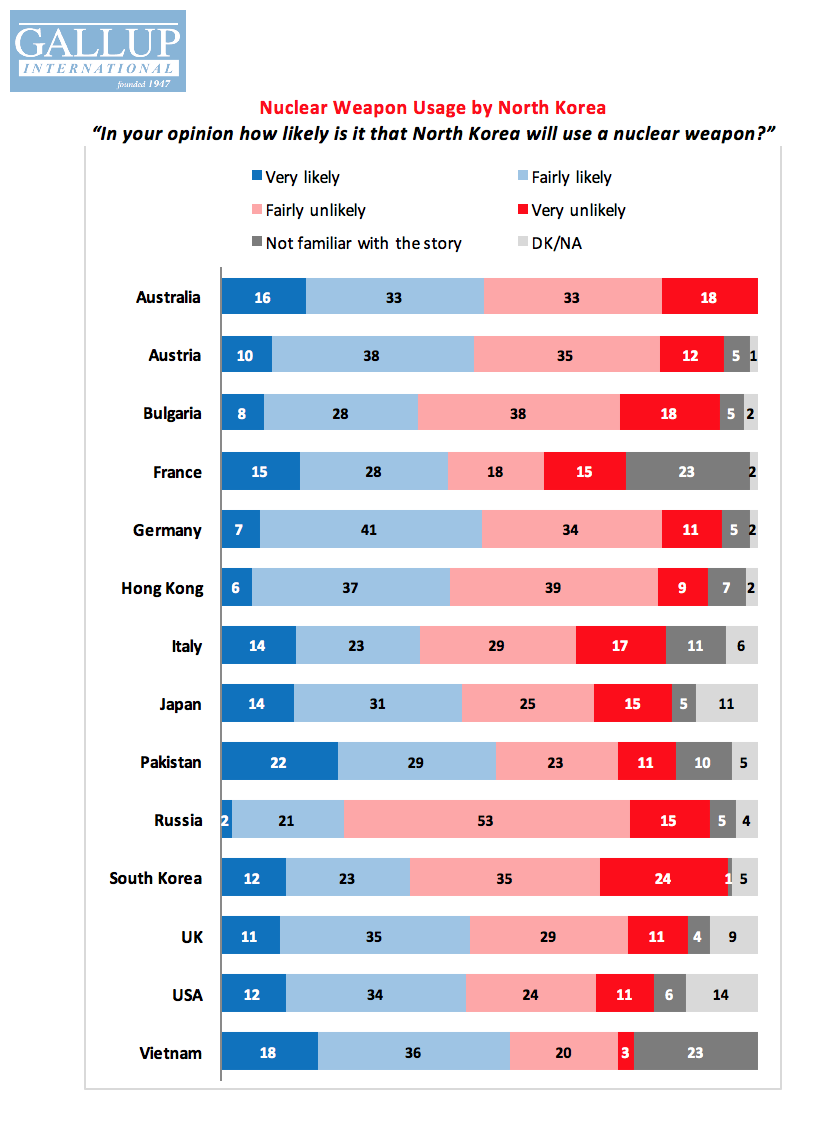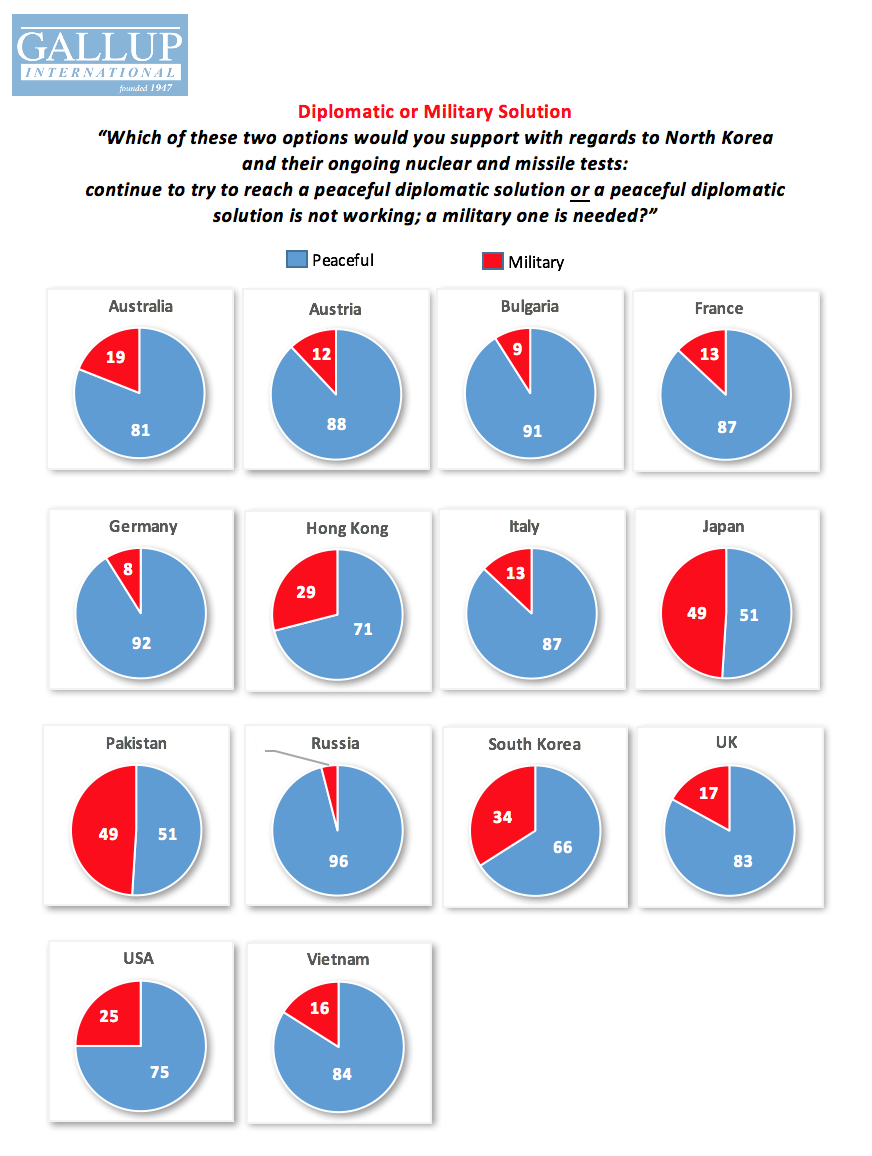Significant fear that North Korea will use a nuclear warhead, but little desire for military response.
- A poll out today from Gallup International* reveals that 43% of people surveyed believe that it is likely that North Korea will move forward and use a nuclear weapon, 46% believing they will not. The poll, representing the opinions of more than 1 billion of the world ‘s population (Australia, Austria, Bulgaria, France, Germany, Hong Kong, Italy, Japan, Pakistan, Russia, South Korea, UK, USA and Vietnam) reveals on average that one in ten think it ‘very likely’. Countries where concern is greatest include Pakistan (51%), Germany (48%), Australia (49%), Austria (48%) and the UK and US (both 46%). Interestingly Japan (45%) is significantly more worried than Pyongyang’s neighbor South Korea (35%). The least worried are in Russia (23%) and Bulgaria (36%).
- In the country that is under the greatest direct risk – South Korea – the overall ratio between likely and unlikely is 1:2 in favor of unlikely.
- Despite some tense rhetoric in recent weeks our survey reveals that a peaceful diplomatic solution of the North Korea crisis is overwhelmingly preferred over a military solution – on average over 3/4 of those polled favored giving diplomacy more time. A diplomatic solution is almost the unanimous preference for Russians (96%) while Pakistan and Japan both reveal an even split – 51% favouring diplomacy, 49% military. And neighboring South Korea – well one in three (34%) prefer the military option, 66% diplomacy.
Kancho Stoychev, President of the Gallup International Association:
“This snap poll done across the world in only 10 days reflects the opinion of over one billion people and covers the two superpowers US and Russia, two of the potentially most affected countries – South Korea and Japan as well as the two EU heavy weights Germany and France. It shows the extent to which people are worried about the nuclear activities of North Korea. Despite these fears, a clear majority prefer a diplomatic and peaceful resolution of the crisis. In Japan public opinion is split between peaceful and non-peaceful approaches which is fully understandable because, together with South Korea, Japan carries the highest risk; the logic being that it is better to solve the problem once and forever.”
Johnny Heald, Research Director at Gallup International Association:
“Despite significant proportions in a majority of those countries surveyed believing that Kim Jong-Un will actually use a nuclear weapon, the majority of people still want to see a diplomatic rather than military response. A military response to a leader with nuclear warheads who has previously launched intercontinental ballistic missiles is possibly considered to be too risky for many of those surveyed. Yet despite having had rockets flown over their territory it is the Japanese that appear to want a tougher response with 49% favouring a military response”.
Methodology
A total of 17,107 persons were interviewed across 14 countries around the globe. In each country a nationally representative sample of adult men and women was interviewed either via telephone (4 countries; n=3,988), online (8 countries; n=9,822), via sms survey (1 country, n=1,797) and f2f (1 country, n=1,500). The fieldwork took place between 20th September and 01st October 2017, the data was weighted accordingly for each country.
*About Gallup International Association
Gallup International was formally founded in May 1947 with 11 pioneering research institutes and Dr George H Gallup as its first President.
For 70 years Gallup International Members have demonstrated their expert ability to conduct multi-country surveys on a comparable basis and deliver the highest quality. Their Members are leading national institutes with a profound local knowledge of research methods and techniques, statistical sources, customs and culture differences of its own country and carefully selected by the Association Board. With only one Member agency per country, Members work together on a daily basis to share knowledge, new research
Cover Photoby Vietnam Mobiography used under CC BY 2.0 license


